From crime to migrants to Gaza to a slew of progressive initiatives, Mayor Brandon Johnson had a busy first year in office, with successes sprinkled amidst a variety of crises. Here are some of the highlights, lowlights and key events from the past year.
Feb. 28, 2023: Election, Round One
Brandon Johnson, a Cook County commissioner and former Chicago Teachers Union organizer, emerges from a crowded field to take one of the top two spots in the first round of mayoral voting. Former Chicago Public Schools CEO Paul Vallas came in first, with nearly 34% of the vote. Johnson was second, at about 20% and incumbent Mayor Lori Lightfoot was third, at 17%. It was a stunning fall for Lightfoot, who just four years earlier had swept all 50 city wards to win her first term.
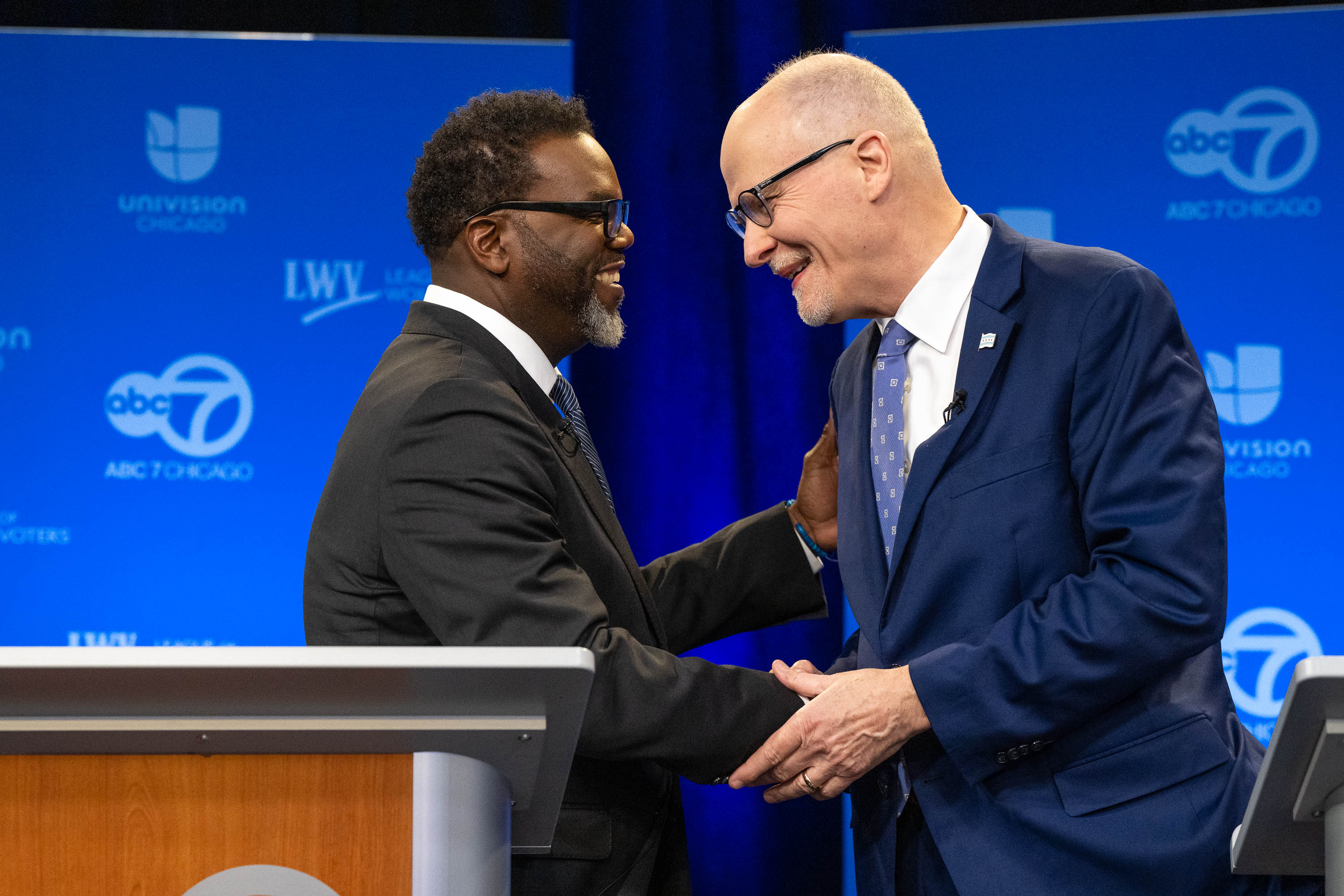
April 4, 2023: Runoff Election
Johnson wins the runoff election to become mayor of Chicago, defeating Vallas by about three percentage points.
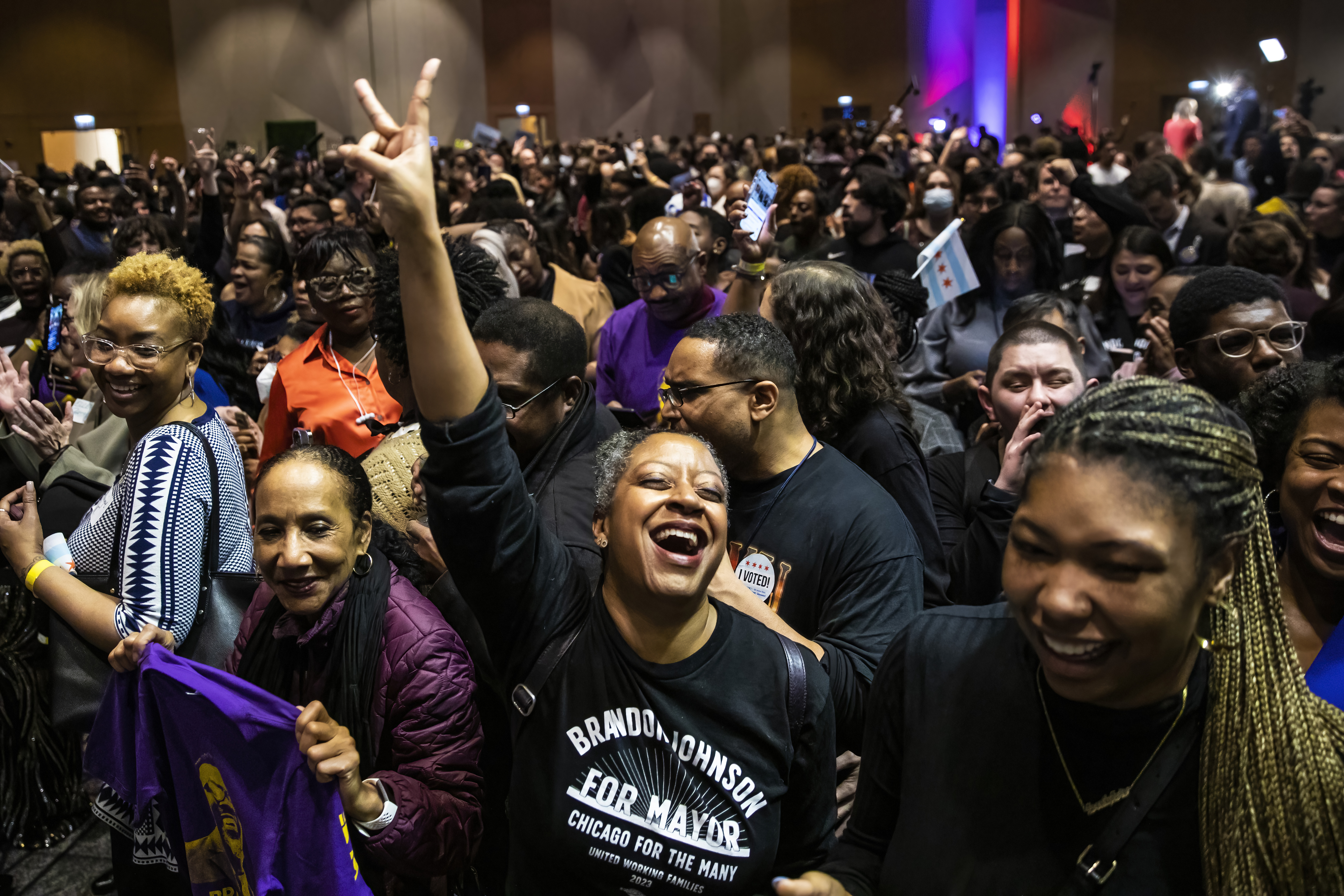
May 15, 2023: Inauguration
Johnson is inaugurated at Credit Union 1 Arena on the campus of the University of Illinois-Chicago. “Welcome to the peaceful transfer of power,” the outgoing mayor, Lori Lightfoot, told the crowd as she kicked off the proceedings, and before getting a friendly hug from her successor. In a speech that included more than a dozen uses of the phrase “the soul of Chicago,” Johnson promised “to build a city that works for everyone.”
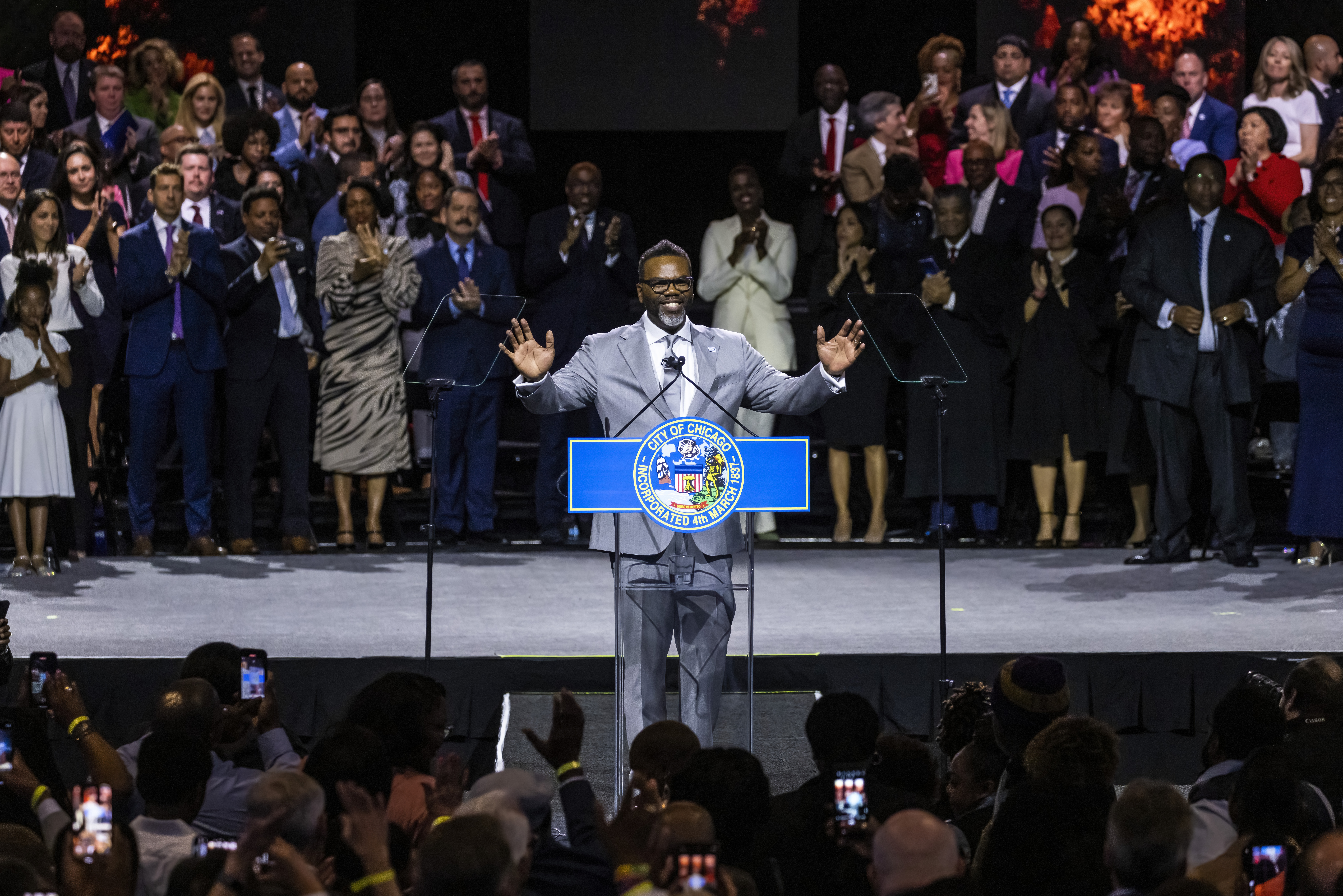
July 5, 2023: School board reshaped
Johnson cleans house at the Chicago Board of Education, replacing all but one member of the seven-person board overseeing Chicago Public Schools. Johnson’s appointees included several activists and only one lawyer, who runs a legal aid group. The board will triple in size next year, with some members elected, the beginning of the transition to a fully elected board.
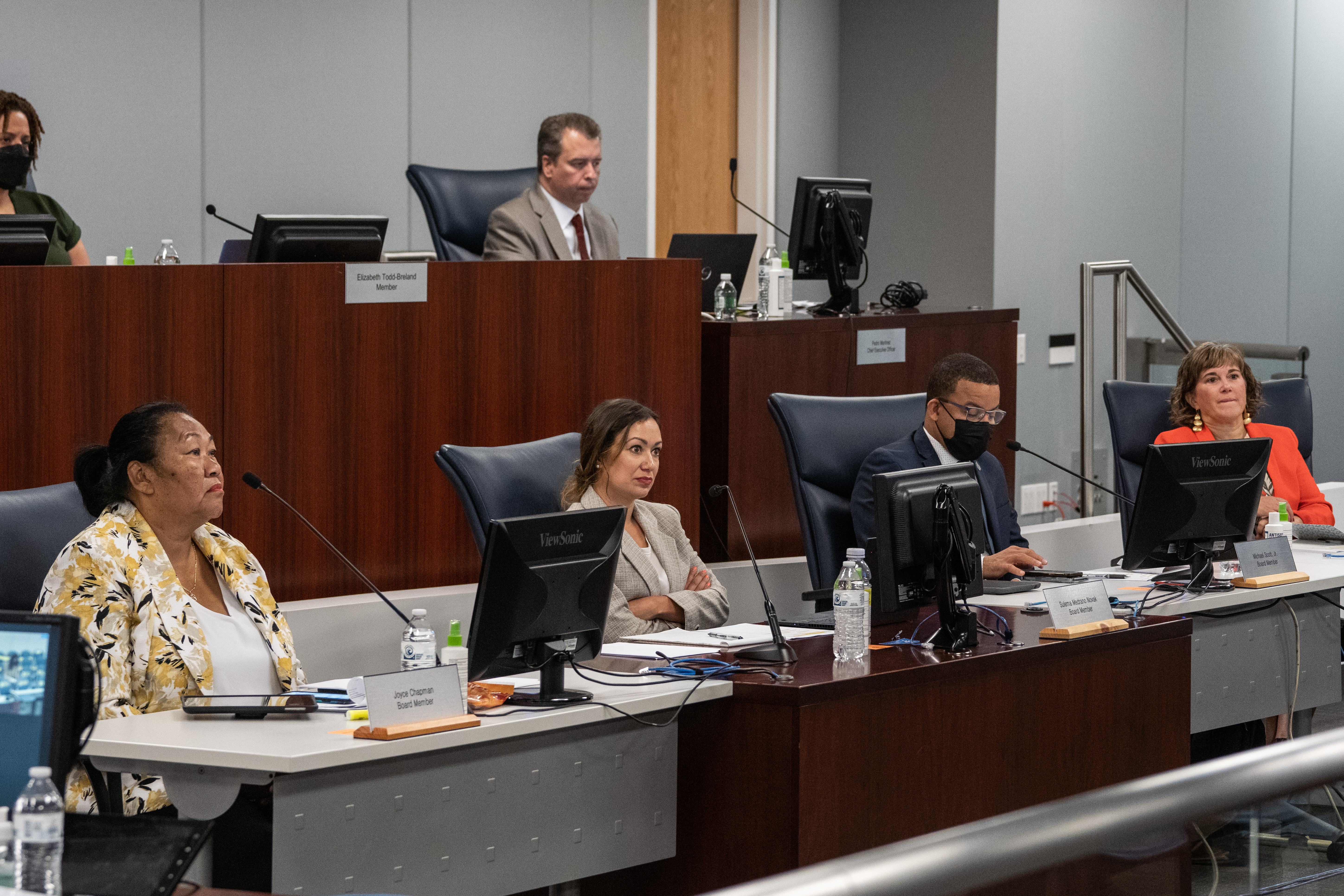
Aug. 14, 2023: Picks top cop
Johnson announces his choice as superintendent of the Chicago Police Department. It’s Larry Snelling, the department’s counterterrorism chief, a 29-year CPD veteran.
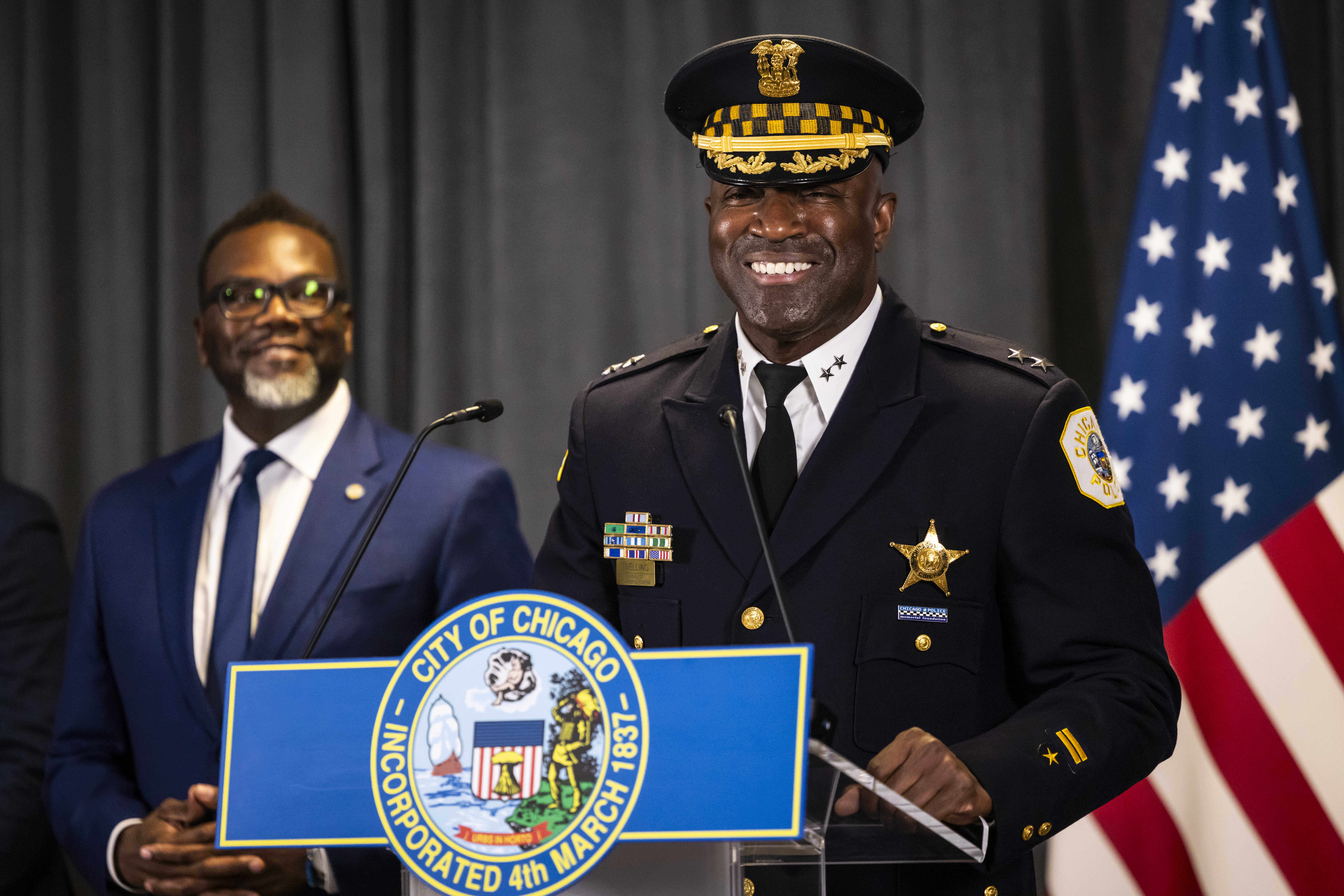
Oct. 6, 2023: Subminimum wage
In one of several big wins for the progressives who helped put Johnson in office, the Chicago City Council eliminates the city’s subminimum wage for tipped employees. Restaurants previously had been allowed to pay some employees a much lower wage, on the assumption that tips would make up the difference.
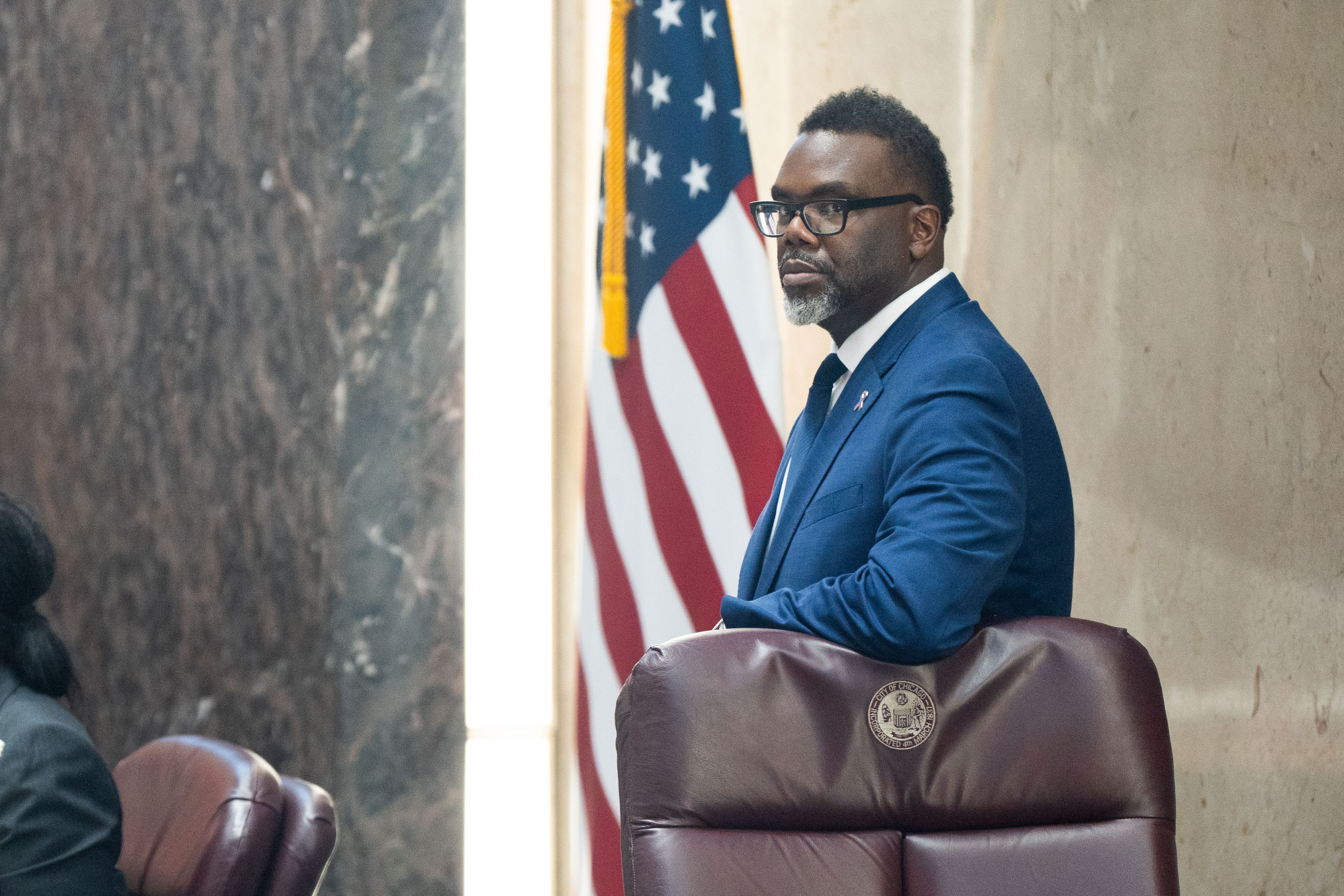
Oct. 11, 2023: His first budget
Johnson unveils his first city budget, a $16.6 billion spending plan balanced in part by using $434 million in surplus funds from tax increment financing districts.
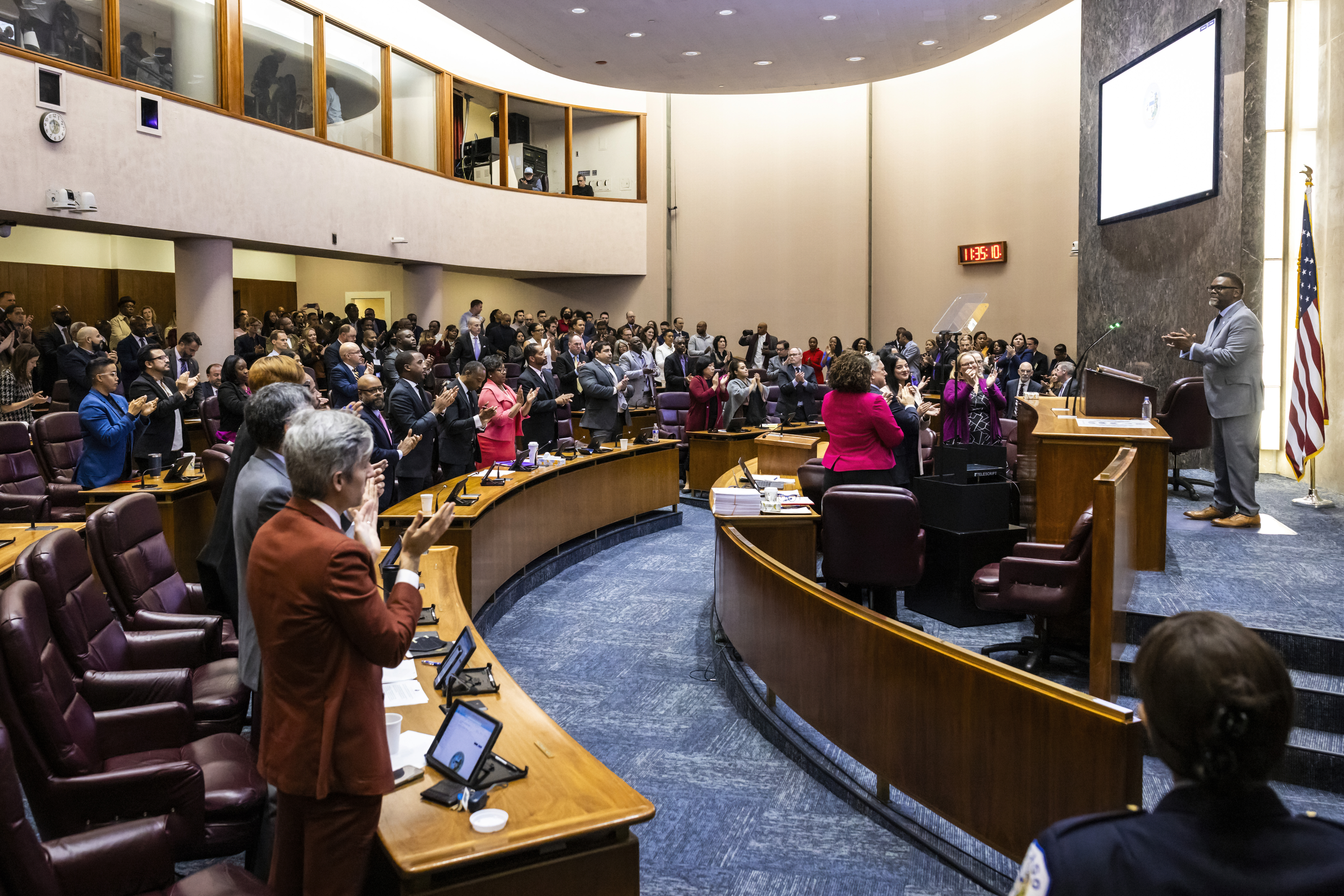
Nov. 7, 2023: Censure vote tiebreaker
Johnson’s City Council floor leader, Ald. Carlos Ramirez-Rosa (35th), narrowly avoids censure, with the mayor voting to break a 24-24 tie. Ramirez-Rosa already had resigned as floor leader and as zoning committee chair after being accused of bullying members to prevent members from forming a quorum at a special Council meeting called to approve an advisory referendum asking Chicago voters whether Chicago should remain a sanctuary city. Ramirez-Rosa was accused of manhandling Ald. Emma Mitts (37th) to prevent her from entering the chambers.
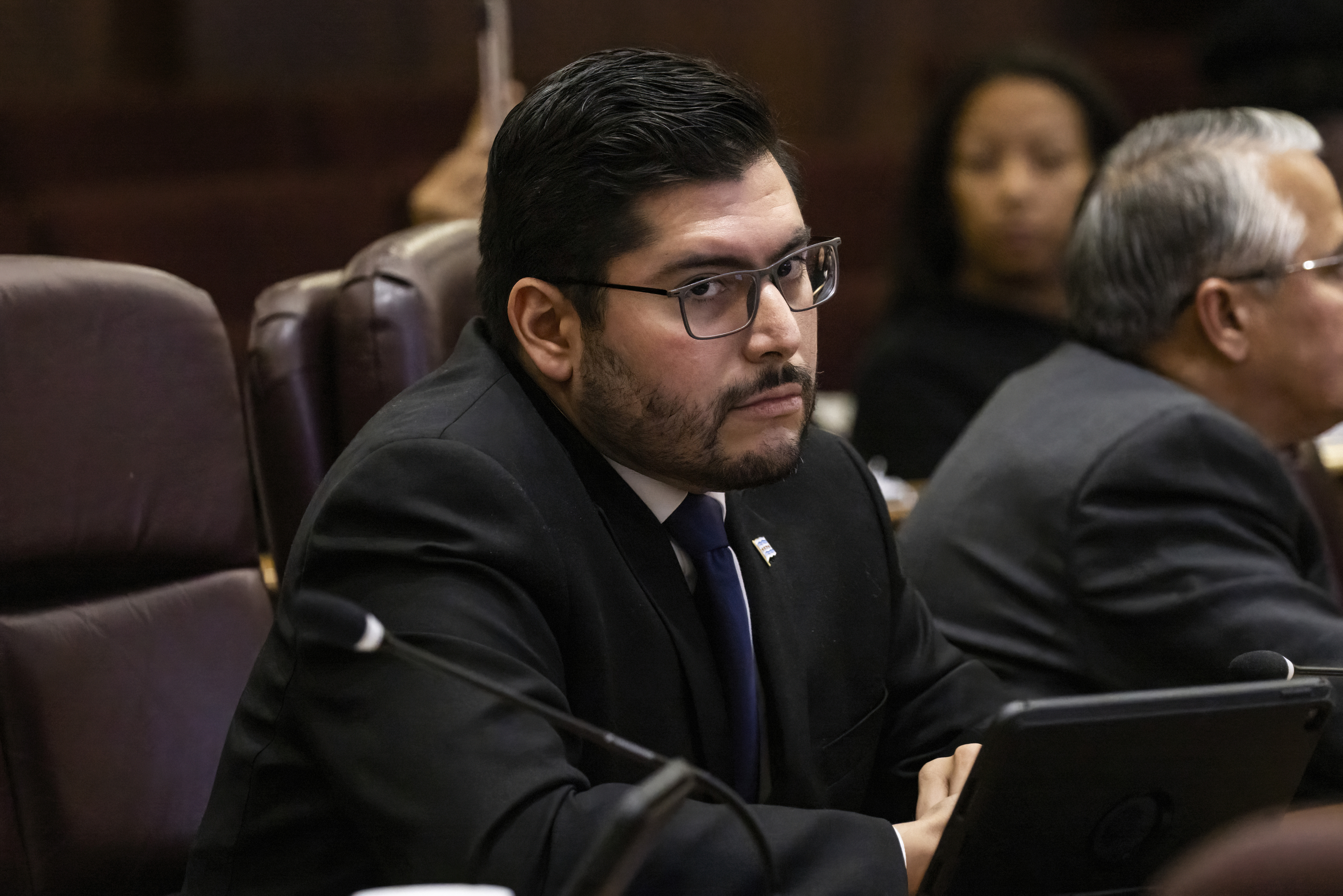
Dec. 5, 2023: Brighton Park migrant camp nixed
The ongoing migrant crisis was one of many challenges Johnson has dealt with since his election, and one of the ways he sought to deal with it — building winterized “base camps” — suffered a setback when Gov. J.B. Pritzker shut down construction at the mayor’s chosen location for the first of those camps, in Brighton Park. The cancellation came just days after the city released an environmental report shoeing the location at 38th Street and California Avenue required cleanup of heavy metals and toxic chemicals.
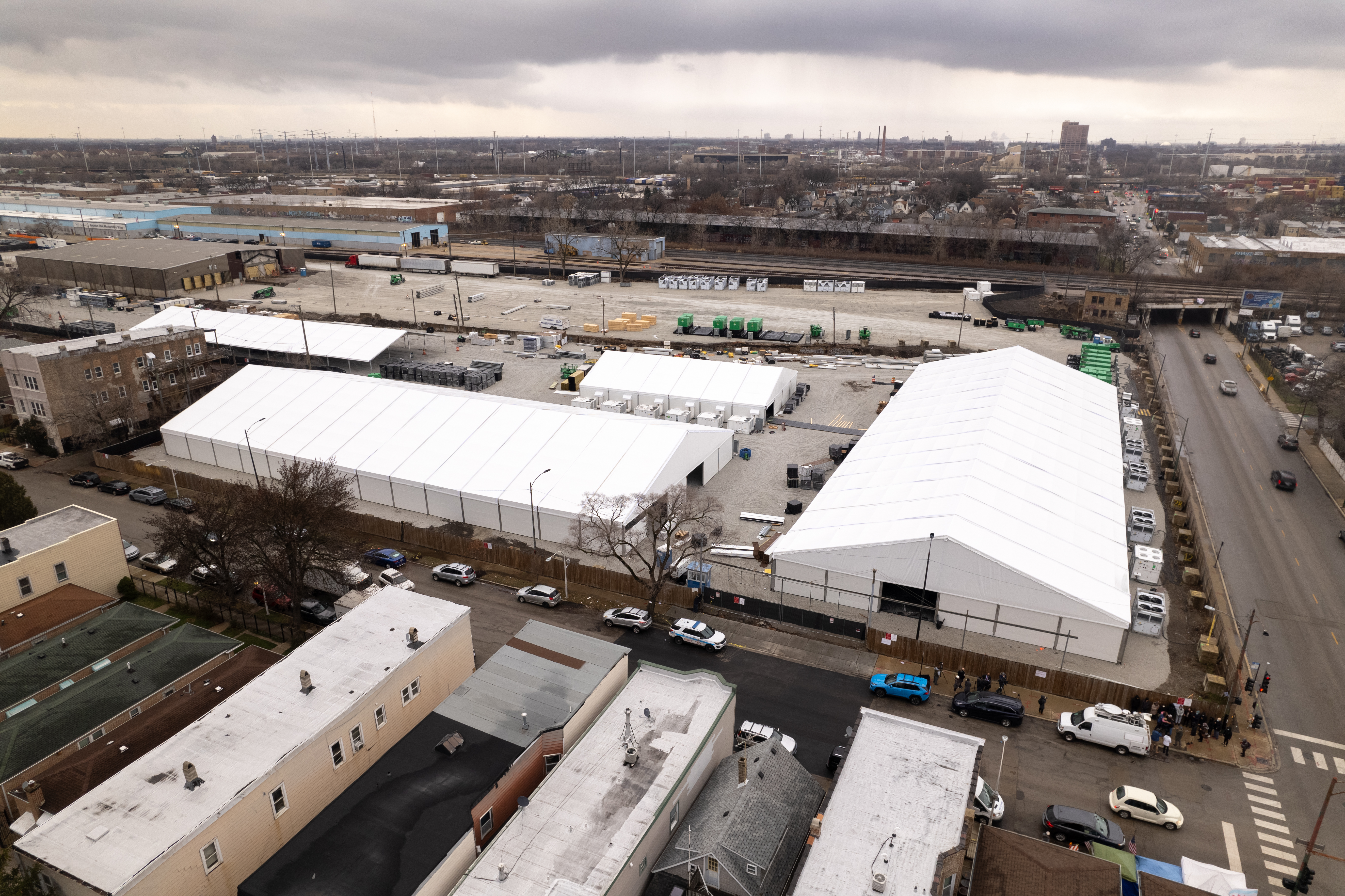
Jan. 31, 2024: Another tiebreaker — this time, on Gaza
At a raucous City Council meeting, Johnson cast the tie-breaking vote to approve a symbolic resolution calling for a ceasefire in Gaza. The vote came after a meeting punctuated by chants and shouts from the crowd, with the situation at one point growing so chaotic, Johnson cleared the chambers, delaying the meeting for about an hour. Johnson had taken similar action in October, clearing the chambers before a divided Council approved a resolution condemning the Oct. 7 Hamas attack on Israel that triggered the war.
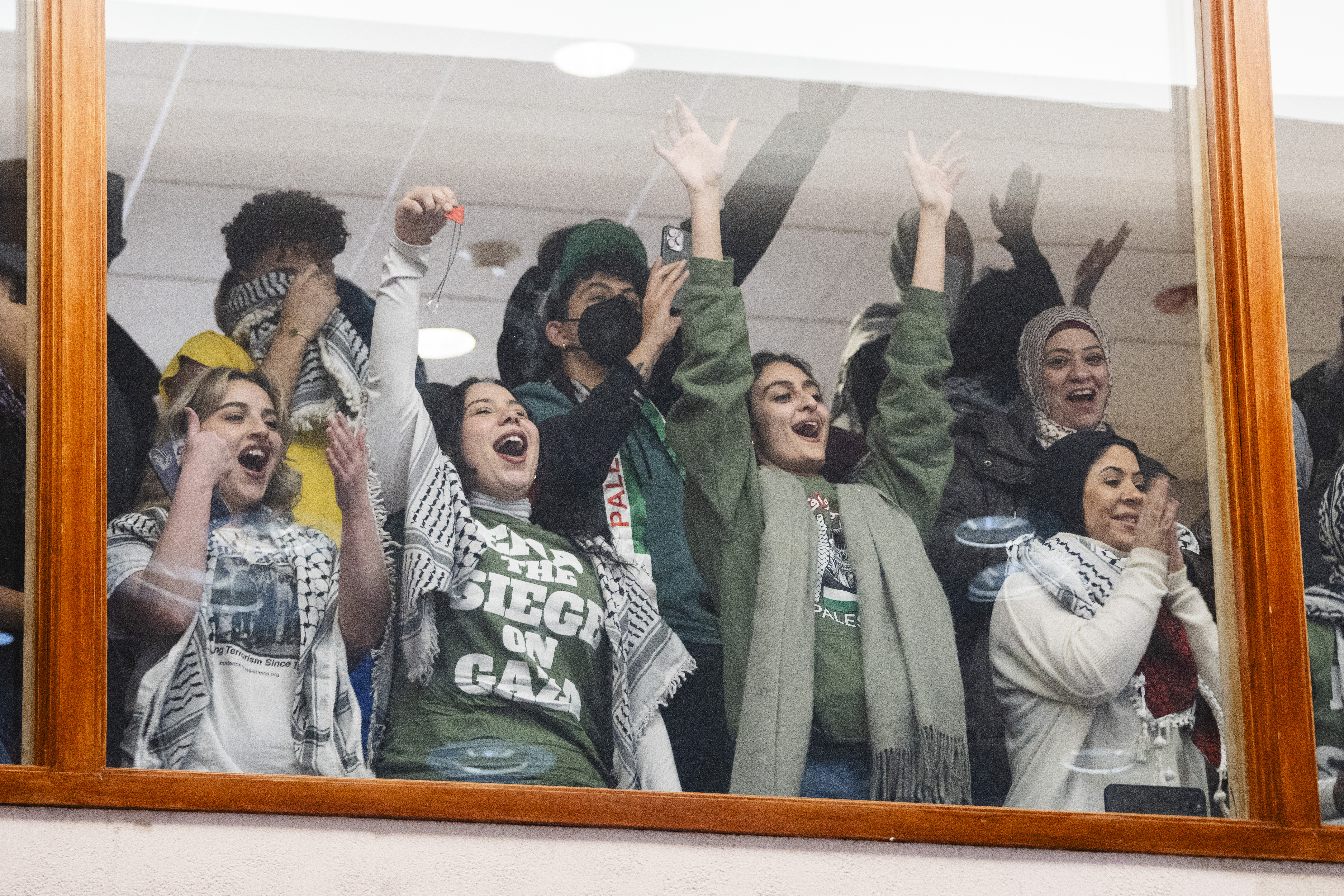
Feb. 21, 2024: Bonds for housing, development
Johnson proposes issuing $1.25 billion in bonds to fund housing and economic development programs. Borrowing the money for such programs through a bond issue would be a shift away from relying on tax increment financing to fund such programs. The bond issue is approved by the Council two months later.
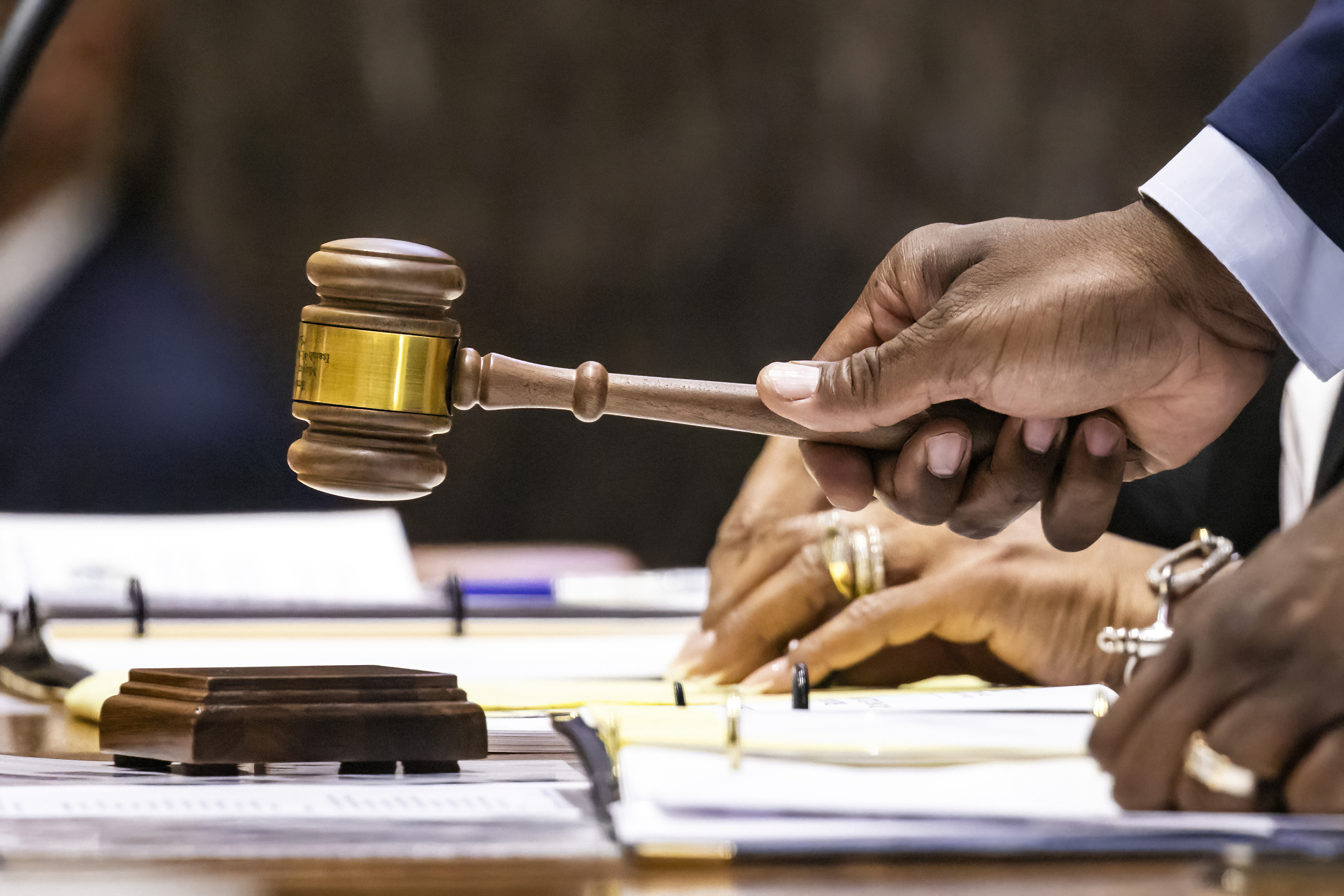
March 19, 2024: ‘Bring Chicago Home’ rejected
One of Johnson’s major initiatives to reduce homelessness, nicknamed “Bring Chicago Home,” fails at the polls. The ballot referendum asked voters to adjust the real estate transfer tax to generate about $100 million a year (increasing the rate on higher-end sales, cutting it on sales under $1 million).
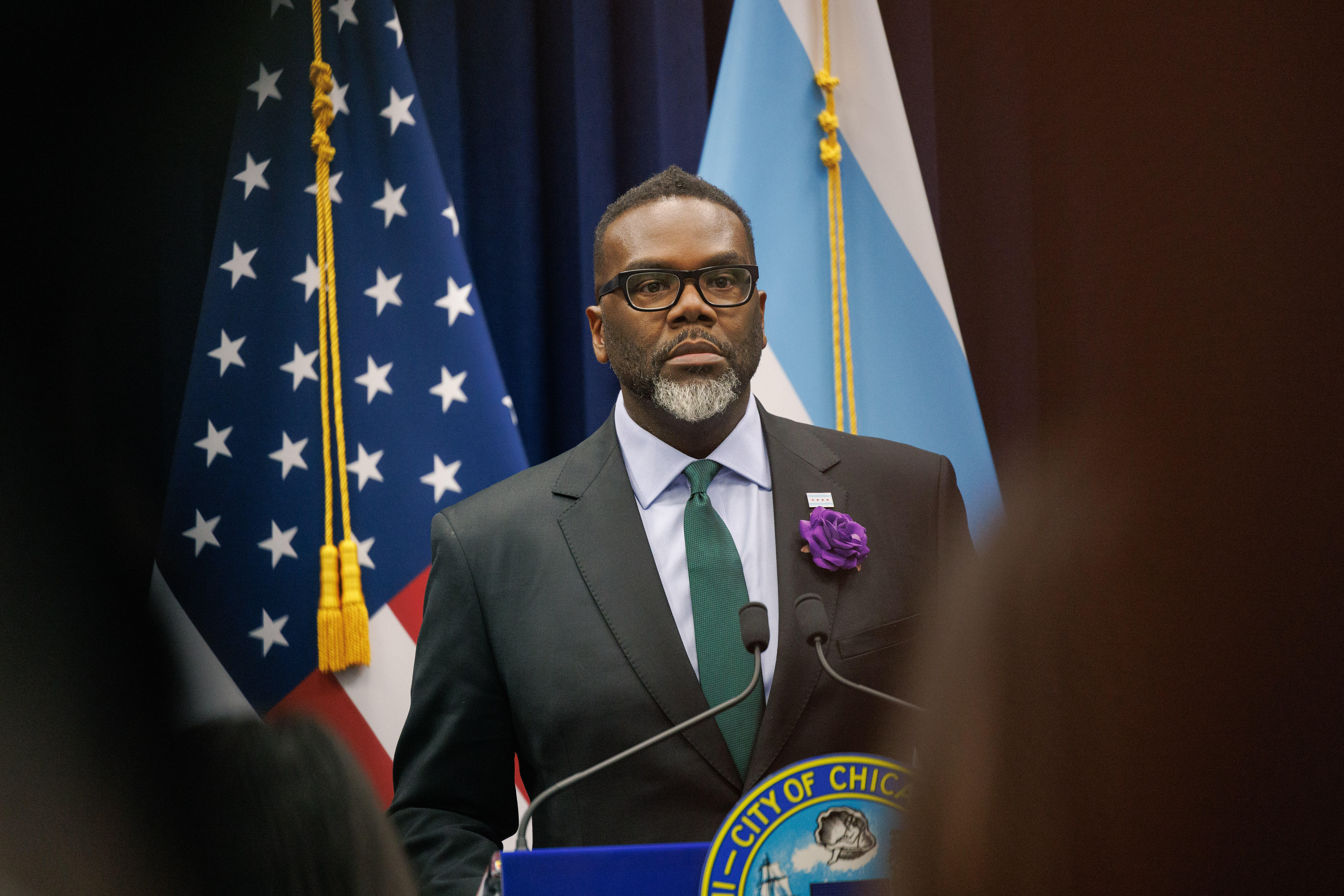
April 3, 2024: LaSalle Street transformation
Johnson moves forward in the effort to convert La Salle Street office buildings to residential use, announcing four projects that will create a total of 1,037 apartments. Combined, they would receive $151.2 million in tax increment financing assistance.
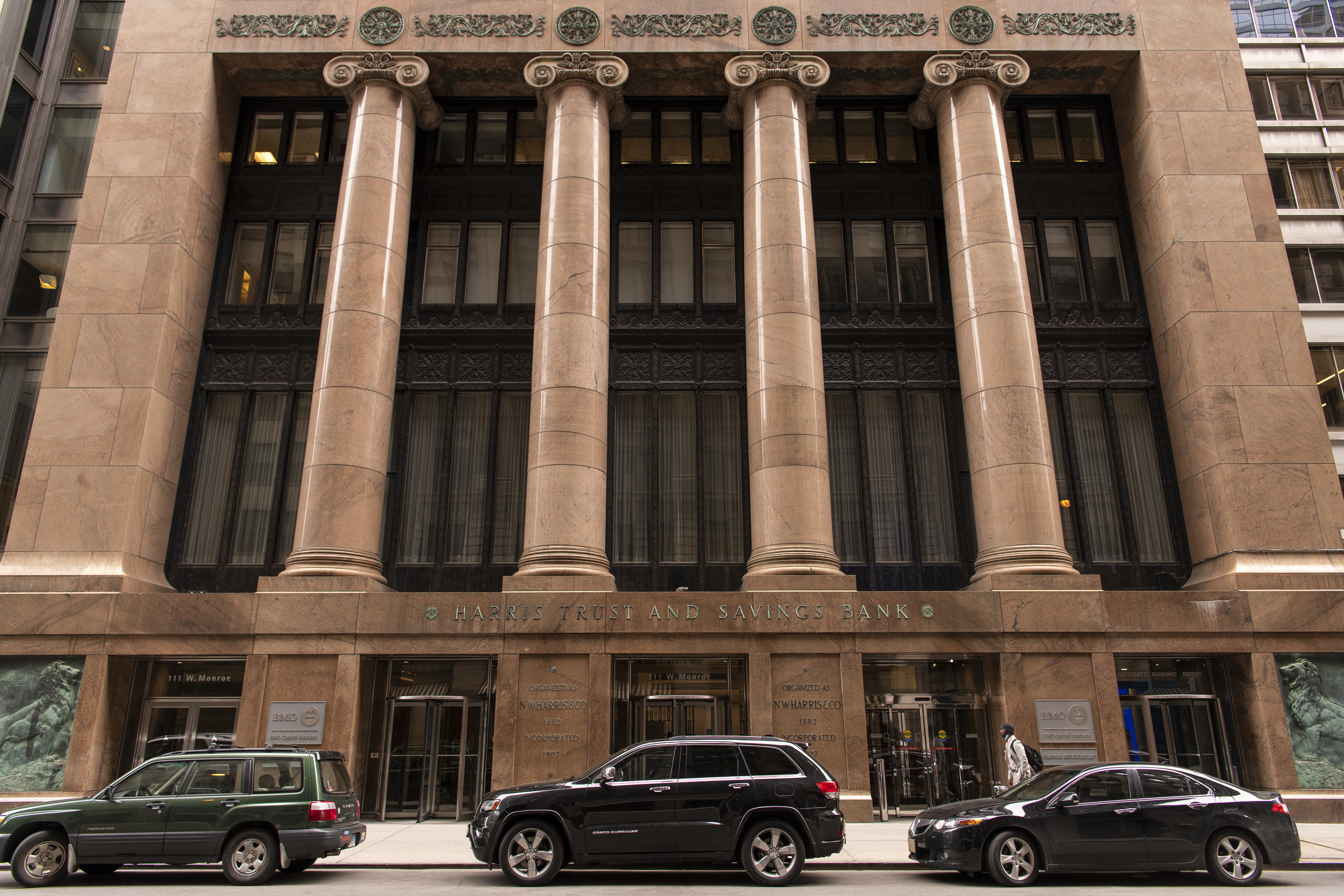
April 24, 2024: Bears stadium cheerleader
Johnson is one of the featured speakers at a Soldier Field news conference, leading the cheers as the Chicago Bears unveil their full pitch for a new domed lakefront stadium that would need a substantial amount of public funding. “This is a beautiful day for the city of Chicago,” Johnson declares, as he emphasized what he saw as the public benefits of the plan in creating thousands of jobs, and insisting it would not require any new taxes.





